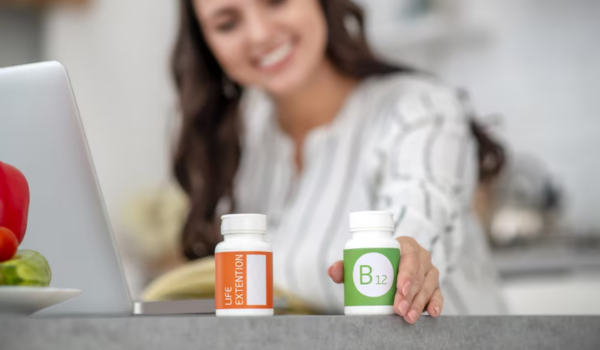17 Best Supplements to Reduce Cortisol Levels in 2025
Top 17 Supplements to Reduce Cortisol Levels Naturally in 2025 for Stress Relief & Adrenal Support

In our modern, fast-paced world, chronic stress has become an all-too-common experience. One of the body’s primary responses to stress is the release of cortisol, a hormone produced by the adrenal glands.
While cortisol plays a vital role in various physiological functions, persistently elevated levels can lead to a host of health issues, including weight gain, sleep disturbances, impaired immune function, and mood disorders.
Fortunately, a combination of lifestyle modifications and targeted supplementation can help manage cortisol levels effectively.
In this comprehensive guide, we’ll explore 17 of the most effective supplements to reduce cortisol in 2025, backed by scientific research and expert recommendations.
Understanding Cortisol: The Stress Hormone
Cortisol is often referred to as the “stress hormone” because it’s released in response to stress and low blood-glucose concentration.
It helps regulate metabolism, reduce inflammation, and control blood sugar levels. However, chronic stress can lead to prolonged cortisol elevation, which may contribute to:
- Increased abdominal fat
- Insomnia
- Anxiety and depression
- High blood pressure
- Weakened immune response
Managing cortisol levels is crucial for overall health and well-being.
Top 17 Supplements to Lower Cortisol
1. Ashwagandha
- Ashwagandha is an adaptogenic herb traditionally used in Ayurvedic medicine. Studies have shown that it can reduce cortisol levels by 11–33%, improving stress resilience and promoting relaxation. Standardized extracts like KSM-66 and Sensoril are commonly used in supplements.
2. Magnesium
- Magnesium plays a vital role in over 300 enzymatic reactions in the body, including those that regulate the stress response. Supplementation, particularly with magnesium glycinate, has been associated with reduced cortisol levels and improved sleep quality.
3. Omega-3 Fatty Acids
- Omega-3s, found in fish oil, have anti-inflammatory properties and support brain health. Research indicates that omega-3 supplementation can lower cortisol levels and alleviate symptoms of stress and anxiety.
4. L-Theanine
- An amino acid found in green tea, L-theanine promotes relaxation without drowsiness. It has been shown to reduce cortisol levels and enhance cognitive function, making it beneficial for stress management.
5. Rhodiola Rosea
- Rhodiola is another adaptogen that helps the body adapt to stress. It has been found to lower cortisol levels, reduce fatigue, and improve mental performance under stress.
6. Phosphatidylserine
- This phospholipid is essential for healthy brain function. Supplementation has been linked to reduced cortisol levels, especially after exercise-induced stress, and improved cognitive function.
7. Vitamin C
- Vitamin C is a potent antioxidant that supports adrenal function. Supplementation can help lower cortisol levels, particularly in individuals under high stress.
8. Holy Basil (Tulsi)
- Holy Basil is an adaptogenic herb known for its calming effects. It supports emotional well-being and promotes a balanced stress response, potentially aiding in cortisol regulation.
9. Ginseng
- Ginseng, particularly Panax ginseng, has been shown to modulate the stress response and may help lower cortisol levels. It also supports energy levels and cognitive function.
10. Taurine
- An amino acid that supports the nervous system, taurine has been found to stabilize cortisol levels and improve stress tolerance by promoting relaxation.
11. Chamomile
- Chamomile is well-known for its calming properties. While more research is needed, it may help reduce stress and support lower cortisol levels.
12. St. John’s Wort
- Commonly used for mild to moderate depression, St. John’s Wort may influence cortisol levels by modulating neurotransmitter activity. However, it can interact with various medications, so consultation with a healthcare provider is essential.
13. Vitamin D3
- Vitamin D3 plays a role in mood regulation and immune function. Adequate levels may help modulate the stress response and maintain balanced cortisol levels.
13. B-Complex Vitamins
- B vitamins, including B6, B12, and folic acid, are crucial for energy production and stress management. They support adrenal function and may help regulate cortisol production.

15. Reishi Mushroom
- Reishi is a medicinal mushroom with adaptogenic properties. It may help reduce cortisol levels, support immune function, and promote relaxation.
16. Cordyceps
- Another adaptogenic mushroom, Cordyceps has been shown to enhance energy and stamina. It may also help modulate the stress response and cortisol production.
17. Schisandra Berry
- Schisandra is an adaptogenic berry used in traditional Chinese medicine. It supports adrenal health and may help balance cortisol levels during periods of stress.
Combining Supplements for Optimal Results
Several supplements can be combined for synergistic effects.
For instance, products like Cortisol Manager® by Integrative Therapeutics combine Sensoril® ashwagandha, L-theanine, magnolia bark, and phosphatidylserine to support a balanced cortisol response.
Similarly, multi-ingredient supplements available on the market may include combinations of magnesium, ashwagandha, chamomile, L-theanine, phosphatidylserine, St. John’s Wort, Rhodiola, Vitamin C, and D3 to provide comprehensive stress support.
Lifestyle Strategies to Complement Supplementation
While supplements can be beneficial, they are most effective when combined with healthy lifestyle practices:
- Regular Exercise: Engage in moderate physical activity to reduce stress and lower cortisol levels.
- Mindfulness and Meditation: Practicing mindfulness can help manage stress and promote relaxation.
- Adequate Sleep: Aim for 7–9 hours of quality sleep per night to support hormonal balance.
- Balanced Diet: Consume a nutrient-rich diet, limiting processed foods and sugar.
- Social Support: Maintain strong social connections to buffer against stress.
How to Choose the Right Cortisol-Lowering Supplement in 2025
With so many options on the market, it’s easy to feel overwhelmed when choosing a supplement to help lower cortisol. Here are a few critical factors to consider before making a purchase:
1. Ingredient Quality and Source
Look for brands that use high-quality, clinically studied ingredients. For example:
- Ashwagandha should be standardized (like KSM-66® or Sensoril®).
- Fish oil should be molecularly distilled for purity and potency.
- Mushrooms like Reishi or Cordyceps should be hot water extracted for maximum bioavailability.
2. Third-Party Testing
- Always choose supplements that are third-party tested for purity, potency, and safety. Certification from organizations such as NSF, USP, or ConsumerLab adds credibility.
3. Bioavailability
- Supplements that offer higher absorption rates like liposomal Vitamin C or magnesium glycinate instead of oxide are more effective.
4. Formulation Synergy
- Many cortisol-lowering supplements work better in tandem. A good formulation will include a mix of adaptogens, vitamins, and amino acids that support the HPA (hypothalamic-pituitary-adrenal) axis, the body’s primary stress-response system.
Quick Reference Chart: 17 Best Supplements to Reduce Cortisol (2025 Summary)
| Supplement | Best For | Recommended Dose (2025) | Notes |
| Ashwagandha | Overall stress reduction | 300–600 mg/day | Look for KSM-66® or Sensoril® |
| Magnesium Glycinate | Sleep, relaxation | 200–400 mg/day | High bioavailability |
| Omega-3 (EPA/DHA) | Inflammation, brain health | 1000–2000 mg/day | Choose triglyceride form |
| L-Theanine | Calm focus, anxiety | 100–200 mg/day | Safe with caffeine |
| Rhodiola Rosea | Energy under stress | 200–400 mg/day | Take early in the day |
| Phosphatidylserine | Sleep, post-exercise stress | 100–300 mg/day | Great before bed |
| Vitamin C | Adrenal support | 500–2000 mg/day | Divide dose to avoid GI upset |
| Holy Basil | Emotional stress | 300–600 mg/day | Tulsi tea is another option |
| Ginseng (Panax) | Fatigue, performance | 200–400 mg/day | Can be stimulating |
| Taurine | Nervous system regulation | 500–1500 mg/day | Often in stress drinks |
| Chamomile | Mild anxiety, sleep support | 400–800 mg (tea or extract) | Also available as oil |
| St. John’s Wort | Mood and neurotransmitter balance | 300 mg 2–3x/day | Check med interactions |
| Vitamin D3 | Hormonal regulation | 2000–4000 IU/day | Test levels first |
| B-Complex | Energy, adrenal function | As directed (B6, B12, folate) | Look for methylated forms |
| Reishi Mushroom | Immune and sleep support | 500–1000 mg/day | Best taken at night |
| Cordyceps | Energy and oxygen utilization | 500–1500 mg/day | Ideal pre-workout |
| Schisandra Berry | Adrenal resilience | 500–1000 mg/day | TCM-based support |
A Sample Daily Supplement Stack for Cortisol Management
If you’re considering putting together a cortisol-lowering routine, here’s an example of a simplified daily stack. Always check with a healthcare provider before starting.
Morning:
- Vitamin D3 (2,000–4,000 IU)
- Rhodiola Rosea (200–400 mg standardized extract)
- Omega-3 Fish Oil (1,000–2,000 mg EPA/DHA)
- B-Complex Vitamin
Midday:
- Magnesium Glycinate (200–300 mg)
- Schisandra Berry Extract or Cordyceps for energy and adrenal balance
Evening:
- Ashwagandha (KSM-66® or Sensoril®) (300–600 mg)
- Phosphatidylserine (100–200 mg)
- L-Theanine (100–200 mg)
- Chamomile Tea or supplement before bed
This stack supports energy, cognitive function, and sleep while helping the body adapt to daily stress.
Are Cortisol-Lowering Supplements Safe?
Generally, most supplements listed are considered safe for long-term use when taken as directed. However, potential interactions or side effects include:
- Ashwagandha: May lower blood pressure or thyroid hormone levels in susceptible individuals.
- St. John’s Wort: Can interfere with medications, including antidepressants, birth control pills, and anticoagulants.
- Rhodiola Rosea: May cause overstimulation in high doses.
- Magnesium: In high doses, can cause digestive upset (loose stools).
Best Practice: Always start with a low dose and monitor your response. Choose high-quality brands with clean labels, and when in doubt, consult a licensed medical professional.

Frequently Asked Questions
Q1: How long does it take for supplements to reduce cortisol?
Results vary depending on the individual and supplement type. Some adaptogens like ashwagandha and Rhodiola may show effects within 2–4 weeks. Vitamins and minerals may take a few weeks to correct deficiencies.
Q2: Can I take these supplements with prescription medication?
Some supplements can interact with medications. For example:
- St. John’s Wort can reduce the effectiveness of certain drugs.
- Magnesium may interfere with some antibiotics or thyroid medication.
Always discuss with your healthcare provider before combining supplements with medications.
Q3: Can you take multiple cortisol-lowering supplements together?
Yes, and many multi-ingredient formulations already do this. The key is to avoid duplicating ingredients and to monitor how your body reacts to combinations.
Supplementation vs. Root Cause Healing
While supplements are incredibly useful in the short-term, long-term cortisol balance depends on addressing the root causes of chronic stress, such as:
- Emotional stress and trauma
- Lack of sleep
- Poor dietary habits
- Excessive caffeine or alcohol
- Overtraining or lack of movement
By combining targeted supplementation with root-cause healing strategies, you set yourself up for real, lasting wellness.
The Future of Cortisol Health in 2025 and Beyond
The wellness industry in 2025 continues to evolve, and we’re seeing exciting innovations that may transform how we manage cortisol and stress:
- Precision supplements: Personalized formulations based on DNA, gut microbiome, or hormone testing.
- Smart wearables: New trackers that monitor real-time cortisol or stress biomarkers.
- AI-powered nutrition apps: Custom recommendations based on stress patterns and lifestyle data.
But at its core, stress resilience still comes down to timeless principles: rest, nourishment, movement, and mindfulness.
Final Recommendations: Our Top 5 Picks
Here’s a recap of our editor’s choice for the best cortisol-reducing supplements in 2025, based on effectiveness, quality, and user feedback:
- Ashwagandha (KSM-66® or Sensoril®) – Best overall adaptogen.
- Magnesium Glycinate – Best for sleep and stress reduction.
- Omega-3 EPA/DHA – Best anti-inflammatory and brain support.
- Rhodiola Rosea – Best for focus and energy under stress.
- Phosphatidylserine – Best for cortisol regulation and memory.
Conclusion
Chronic stress is not just a mental burden, it’s a full-body experience that impacts your immune system, metabolism, brain, heart, and mood. Keeping your cortisol in check is essential for a long, vibrant life.
Whether you’re dealing with burnout, anxiety, insomnia, or just the pressures of modern living, the right supplements combined with lifestyle upgrades can make a powerful difference.
Take charge of your health in 2025. Use this guide as a resource, consult with trusted professionals, and remember: healing doesn’t come from one pill it comes from consistent care and conscious choices.
.